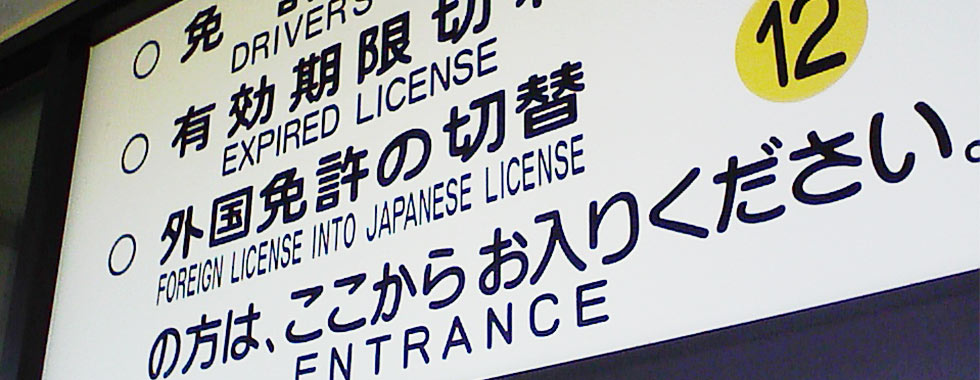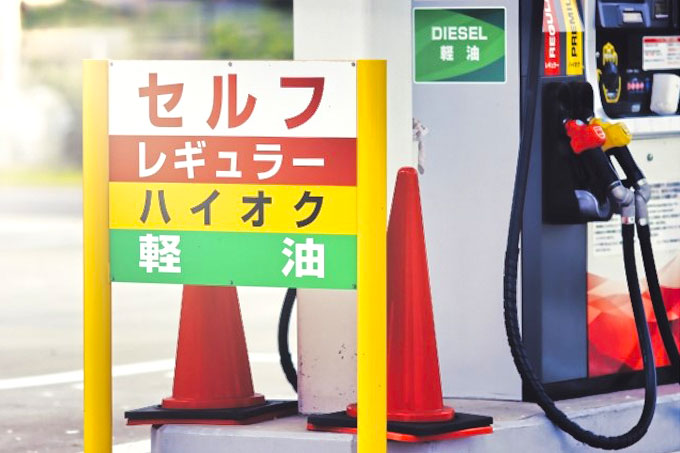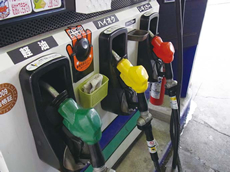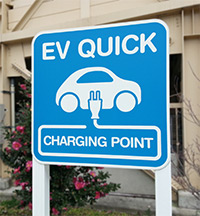 (original photo by Robert Sanzalone;CC BY 2.0)
(original photo by Robert Sanzalone;CC BY 2.0)
As a foreigner you can drive using a foreign license with an International Driving Permit or an official translation of it (depending on your country) for the 1st year, but you must get a Japanese driver’s license after the 2nd year. To transfer to a Japanese driver’s license, you need to submit the required documents to your Prefectural Driver’s License Center in person. Applicants must pass an eye test, written test and driving test to obtain a Japanese license. However, certain nationalities are exempt from the written and driving tests if they fulfil certain criteria.
Driving with a Foreign License
Foreign nationals in Japan can drive for up to one year with a foreign license if they fulfill either of these conditions:
- They hold an International Driving Permit issued by one of the 97 designated territories (please see the Tokyo Metropolitan Police Department website below for details)
- They have an official translation of their license, and the license was issued in one of the following territories: Belgium, France, Germany, Monaco, Switzerland and Taiwan
Converting to a Japanese License
If you have a valid foreign license, you can convert to a Japanese license only if you can show that you stayed in the country, where you obtained the license, for three months after you obtained it. If unable to do this, you may be required to apply for a new Japanese license. See below for information on driving schools in Japan.
All applicants for a conversion of license will be required to undergo an eye test. Written and practical tests are required for most nationalities, except those coming from these 29 territories: Australia, Austria, Belgium, Canada, Czech Republic, Denmark, Finland, France, Germany, Greece, Iceland, Ireland, Italy, Korea, Luxembourg, Monaco, the Netherlands, New Zealand, Norway, Portugal, Slovenia, Spain, Sweden, Switzerland, Taiwan and the United Kingdom, Hungary, Poland, USA (7 States: Colorado, Hawaii, Maryland, Ohio, Oregon, Washington)
Required documents
- Application form (available at the center).
- A valid driver’s license (official documents may be required if the license was renewed within the last 3 months, and does not state when it was first obtained).
- Passport (previous passports will be required if the current one does not prove that you have stayed in the country where you obtained the license for at least 3 months).
- A copy of your residence record (jūminhyō / 住民票), obtainable at your local municipal government office.
- A translation of your driver’s license prepared by your embassy or the JAF (Japan Automobile Federation).
- Resident card.
- 1 photo (3.0cm x 2.4cm) taken within the last 6 months.
- Application fee. (The fee can vary according to the type of license. Check with your local driver’s license center.)
Japanese License Renewal
Japanese driver’s licenses must be renewed every few years. The validity period of the license is 3 years for new drivers and for drivers who incurred penalty points on their previous license. For drivers who avoided incurring points it is 5 years. The expiration date of your license is always set as one month after your birthday, and you can apply up to two months before that date. In addition to a renewal fee and an eye test, you will be required to attend a lecture on road safety. Though there is no test on the contents of this lecture, you will be expected to appear awake and alert throughout the lecture or you risk being disqualified.
Failing to renew your license and continuing to drive after it expires can result in a fine and disqualification from driving, so be sure to check the date displayed on your license.
Useful resources for Driving in Japan
Tokyo Metropolitan Police Department
Tokyo Metropolitan Police Department Driver’s License Telephone Service… Provides information regarding applications for driver’s license.
- Tel
- 03-5463-6000 (24 hours)
Kanagawa Prefectural Police Department
Japan Automobile Federation (JAF)
For 24-hour road service, contact JAF. They offer translation services for license transfers and sell guidebooks on driving rules in Japan.
- Tel
- 0570-00-2811 (customer service)
- Website
- http://www.jaf.or.jp/e
License Transfer Location
Fuchu Driver's License Center
- Tel
- 042-362-3591
- Address
- 3-1-1 Tama-cho, Fuchu-shi
Samezu Driver's License Center
- Tel
- 03-3474-1374
- Address
- 1-12-5 Higashi-Oi, Shinagawa-ku
Koto Driver's License Center
- Tel
- 03-3699-1151
- Address
- 1-7-24 Shinsuna, Koto-ku
Driving Schools
For those who wish to obtain a driver’s license in Japan, or need to take a driving test for license transfer, there are driving schools offering courses in English as well as courses for license transfers.
List of driving schools
Driving Rules
Like any other countries Japan has rules for driving. Since it might be different from your country’s one, please make sure to remember these basic rules:
- Drive on the left side of the road. Japanese traffic rules and signs (also in English) follow international standards.
- Follow the speed limit shown on road signs or markings. At places where there are not any road signs or markings, drive at 60km/h.
- On highways and expressways, 100km/h unless specified otherwise.
- Do not drive after drinking alcohol. Driving under the influence of alcohol is strictly prohibited and will result in a fine, imprisonment or penalty. When a driver is arrested for DUI, the driver and the person offering the car will be fined a maximum of ¥1,000,000, and all other passengers in the vehicle knowingly allowed the driver to drive will be fined a maximum of ¥500,000.
- Do not talk on the phone while driving.
- It is obligatory for all passengers to wear a seatbelt.
- Do not park illegally or your car may be towed away.
- Always carry your driver’s license!
You can learn all of the laws, regulations, and other information on the written test can be found in Rules of the Road published by JAF. You can purchase Digital and printed version.
- Rules of the Road
- Japanese road signs (Wikipedia)
Gas stations

Gas stations in Japan are either self-service or full service, but some stations offer both. At full-service stations everything from refueling your car and cleaning your windows to emptying ash trays is taken care of by the station employees. As can be expected, self-service stations do not offer the above-mentioned services. The prices shown on the signs in front of the station are per liter, and as a rule, self-service stations are usually ¥2-3 cheaper than full-service ones. At self-service stands you either pay before refueling your car or after you have finished. Payments can be made by card or cash. Some stations offer membership programs which result in special discounted prices.
Three types of fuel (two types of gasoline, and diesel) are sold at gas stations. At “full service”, staff will refuel for you if you tell them the type you require. At “self-service” stations, choose the correct kind of fuel for your car. The different types are indicated by multi-colored nozzles, so please be aware of what they represent.

- Haioku (ハイオク, High-octane/Super Premium/Premium)
- yellow nozzle/nozzle cover
- Regyurā (レギュラー, Regular-octane/Regular)
- red nozzle/nozzle cover
- Keiyu (軽油, Light Oil/Diesel)
- green nozzle/nozzle cover
There is a gasoline tax and some stations may list this separately on your receipt.
Gas prices have been fluctuating greatly recently, but the average as of October 2023 is about 170 Yen/L for regular gas, 180 Yen/L for high octane, and 150 Yen/L for light oil. (1L is approximately 0.26 gallon.)
EV Charging Points

EV charging stations are becoming more common in recent years and can be found at some larger public parking lots. The Tokyo government has also begun to subsidize the installation of charging stations in apartment block parking areas.
- EQ Charger location map (Japanese only)
Parking
In order to own a car, you also need to secure a parking space near your house. Parking fees in metropolitan Tokyo range from roughly ¥30,000 to ¥50,000 per month. A parking space certificate must be issued when you buy a car.
When parking elsewhere, you must park at designated spaces. You can find paid parking on the road or in a lot. The parking fees can range from ¥300 to ¥2,000 per hour. Street parking is prohibited on most of the roads and may result in a fine. When your car is towed, you will also have to pay commission for the towing.
Renting a Car
You can rent a car if you do not wish to own your own. Rent-a-car services are reasonably priced in Japan, and you can rent different types of cars depending on your purpose. A small car may cost from around ¥6,000/day, while a van for 7 passengers may cost around ¥20,000/day. Another option is car sharing, where you pay a monthly fee in addition to rental fees (lower than for a regular rental service) for access to cars located in lots around the country. Booking is still required for this service.